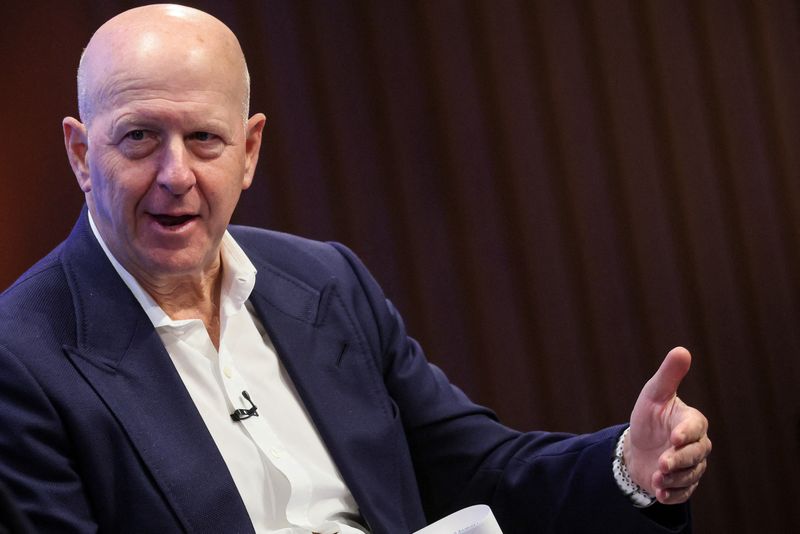By Saeed Azhar
TORONTO (Reuters) – Goldman Sachs’ trading revenue will probably slip 10% in the third quarter because of sluggish conditions last month, CEO David Solomon said on Monday.
Given “a more challenging macro environment, particularly in the month of August, that business is trending down close to 10%,” Solomon told investors at a financial conference in New York.
The slide will follow a very strong quarter for trading in the third quarter of 2023, when equities revenue jumped 8%.
The Wall Street giant’s profit more than doubled in the second quarter as dealmaking rebounded, with debt underwriting and fixed-income trading performing particularly well.
Investment banking continues to improve, even though activity from financial sponsors has not rebounded as much as expected, said Solomon, who was hopeful that private equity-led deals will bounce back at the end of this year and in 2025.
He declined to specify a forecast for investment banking revenue.
Citigroup’s Chief Financial Officer Mark Mason told the same conference earlier Monday that investment banking fees are expected to jump 20% in the third quarter from a year earlier.
Goldman Sachs continues to narrow its focus on the consumer business, Solomon said. He cited Goldman’s sale of loans to small and medium sized businesses, and its plans to exit a credit card partnership with General Motors (NYSE:) as examples of the bank stepping back from retail businesses, an effort that began in late 2022.
“The combination of those things this quarter will likely have an approximately $400 million pre-tax impact, largely showing up in revenues,” Solomon said.

General Motors is in talks with Barclays for a credit card partnership deal that will replace Goldman, a source familiar with the matter told Reuters in April.
Meanwhile, the U.S. economy has been in “reasonable shape,” suggesting credit conditions will remain relatively steady, he said.
